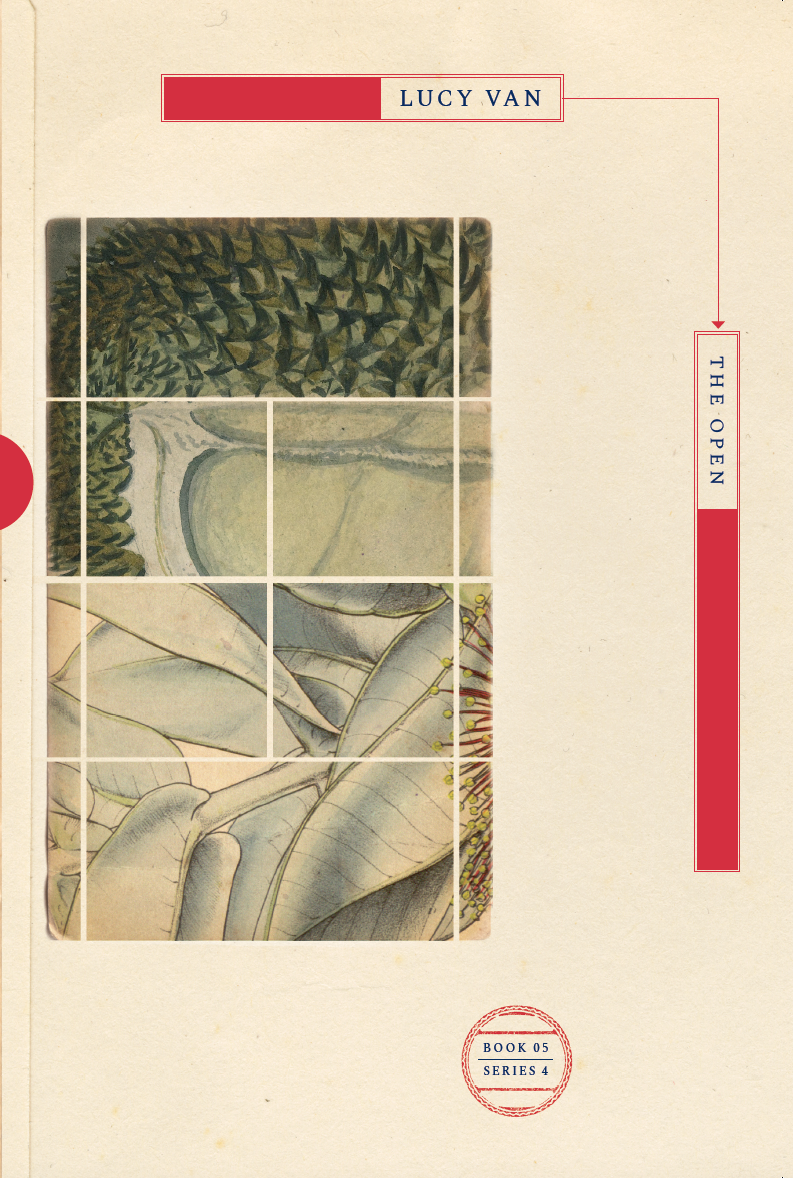
This door, this though
All doors are open in Lucy Van’s poetry. Ingress and egress are multiple, even coincident. We’ve just touched what’s here, or are about to touch it, when apprehension is quickly unsettled, halted or reconfigured. Because we’re only passing through a door or another door is opening, as the poet offers: ‘Another thought though (and oh, I think about how thought and though are very similar words)’. Hers is a liminal though. Between what’s touched and what’s yet to be touched. Site of frisson. Contention. Then insight.
The book opens to Hotel Grand Saigon: ‘I have gone back and now I am here.’ ‘Back’ is her father’s family and roots in Vietnam, opening the door to his migration history, only a peek, though (‘Never write a poem about a boat’), then opening to Vietnam’s colonial history. And now we are here where the Vietnamese staff ‘are always ready to serve’ the French and other holidaying Europeans and white Australians, and herself, the Vietnamese Australian poet ‘coming home’, though also waited on or waiting in a gift shop and unable to ask, because she can’t speak her father’s language. Van’s poetry is an ongoing decolonial passage. Each opened space and time takes to task the one just left, then comes home to the poet, her self-reflexive though pointing to her own entanglement. She’s inside and outside these pasts and presents, or presences: touched and untouched.
But is one ever untouched? The ocean passes beneath these poems and one inevitably gets wet. It’s ‘a liquidation of territory’, whether in Vietnam or in Australia, where land has been liquidated, too, by the passage of colonial ships through water. Public or personal territory, even the most intimate, is persistently liquidated. Disappeared by coloniality, modernity, progress, by growing up and outgrowing, or by an aside, this though. Or simply made liquid, flowing through the next door, only to reappear as something else at the other side before moving on again. Van’s quicksilver to-ing and fro-ing creates an insight-coaxing discombobulation. But it’s the liquidation of the poem’s territory that is the hallmark of this collection, prose poems occasionally juxtaposed with the familiar shape: that block of a poem. To accentuate the liquidation? These prose poems start as a moment flowing in interior monologue into multiple spaces and times. Then sneakily, and bravely too, they open estranging doors, so poetry starts reading like short story becoming extemporaneous discourse, erudite and interrogative, hopscotching from Foucault to Kristeva to Homer to Bishop to Whitman to Catullus to Malouf to Plath.
Each is a new door opening: this though.
Is this from the sheer force of water that wants out, wants more?
The poet’s serve is vigorous: reader hurtles through another door and is suddenly in the middle of the Australian Open. Here, ‘[t]he court is [her] discursive space’. The ‘serve is the rhetorical question’ and the return, birdsong, ‘the aggressive claiming of territory’. Or merely a wish to restore what was liquidated? Tennis becomes philosophy. The line of thought is the line of though: one is again taken elsewhere. But always she returns to family, home, the intimate, the body touched and untouching: ‘most of your life you are coming home … all the while you are leaving’. It’s when Van is in this transit on ‘A Little Cloud’ that she’s most moving, and she transcends. Like when she watches her father drink a Fanta – poet drinking him up down to ‘the lump in his throat mechanical with thirst’ – and she’s ‘transposed … to the temple’, to ‘[p]laces like this … filled with doors’.














Pingback: #AustralianPoetryMonth with #RedRoomPoetry-Day 28 Lucy Van: The Open (Cordite, 2021) – La Pluma Poderosa